Description
ABSTRACT
Copyright: Choice of Law and Jurisdiction in the Digital Age
David Ike*
The central focus of this paper is on insecurity of title to land in Nigeria caused by the continued application of the anachronistic common law doctrine of lis pendens. The application of the doctrine has led to hardship, loss, anxiety, wanton destruction of property and unnecessary litigation on account of absence of a mechanism for prospective buyers to verify whether a property is subject to any pending suit. The solution suggested in this paper is legislative intervention by making lis pendens registrable; to serve as notice to the general public of pendency of litigation over land. The paper urges the legislature and law reform commissions in all the states of Nigeria to take steps to promulgate laws that would modify the application of the doctrine of lis pendens, as obtainable in other jurisdictions. The paper suggests that lis on recovery of title to land be compulsorily registrable, as registration would serve as notice to prospective buyers and reduce insecurity of title.
Keywords: Copyright, Internet, Choice of Law, Jurisdiction
INTRODUCTION
In legal circles, the Internet is proving to be quite a challenge: its global dimensions, which cut across territorial borders, are creating significant legal questions. Copyright law is no exception. It is undeniable that the Internet is a legal and jurisdictional “no-man’s land”. Which domestic law will govern the multiple acts of exploitation and infringement of copyrighted works on the Internet? Which court will have jurisdiction to make decisions as to copyright infringements occurring on the Internet? Should we design new choice of law and jurisdiction rules to decide these issues? Or should we just wait and see how the existing rules, in the hands of courts and lawyers, make their way through the digital network?
Questions of jurisdiction and choice of law have become increasingly important in the field of intellectual property law since markets have become increasingly “global”, while copyright laws remain basically “territorial”. The existing legal framework for deciding jurisdiction and choice of law rules for copyright derives from two sources:
a. Copyright rules (domestic laws and international instruments on copyright); and
b. Private international law rules (rules on jurisdiction and choice of law provided in domestic laws and international instruments).
There is no “international” copyright law, just numerous domestic laws applied within the boundaries of their respective domestic territories. The others are international efforts developed in the 19th century at bilateral, regional, and worldwide levels to ensure the protection of copyrighted works outside the boundaries of nations. The most important was the Berne Convention for the Protection of Literary and Artistic Works of 1886.1 Intellectual property rights have always been regarded as territorial, and the international conventions were built upon that concept.
Private international law addresses problems that arise from the territorial nature of legal systems, in particular, problems of attributing jurisdiction to national courts, and of determining applicable domestic law. No international convention has been adopted globally in the areas of jurisdiction, choice of law and the enforcement of foreign judgments.
* Lecturer, Faculty of Law, Imo State University, Owerri.
- Berne Convention for the Protection of Literary and Artistic Works, Sept. 9, 1886, 828 U.N.T.S. 221, [hereinafter Berne Convention].

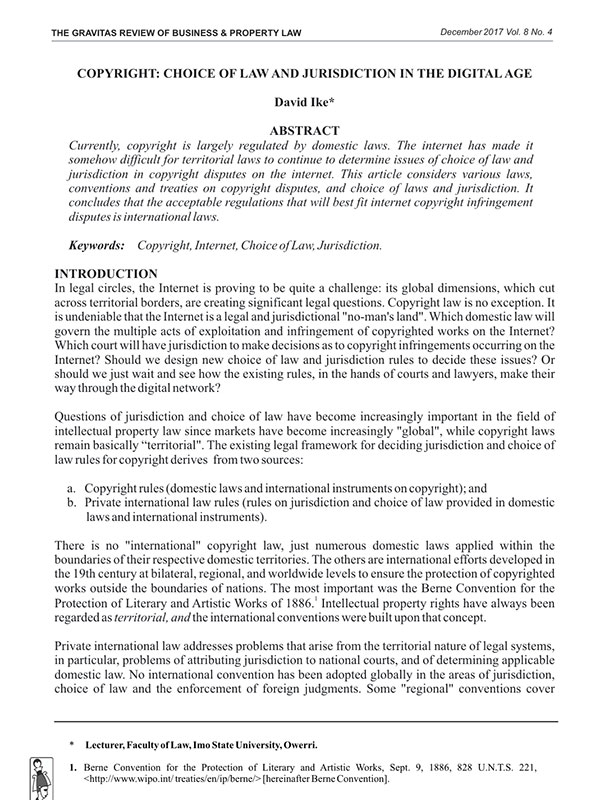
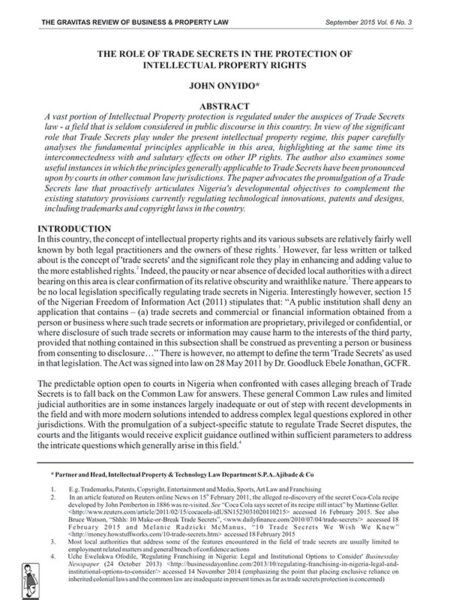
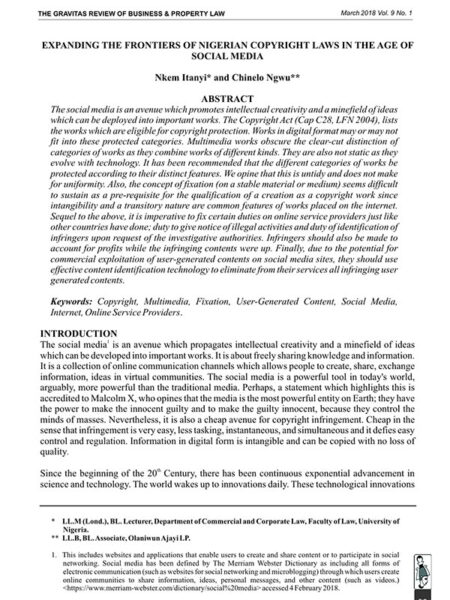
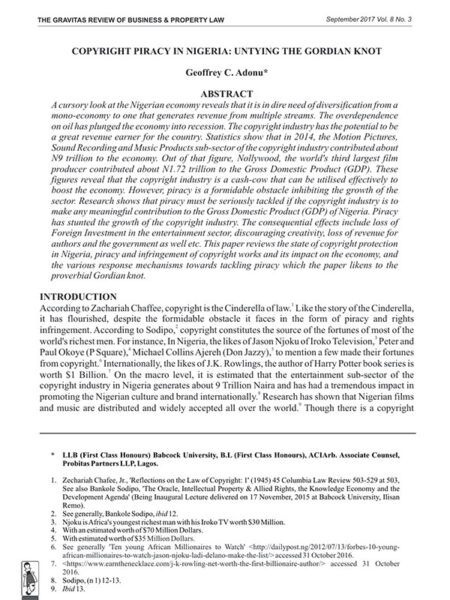
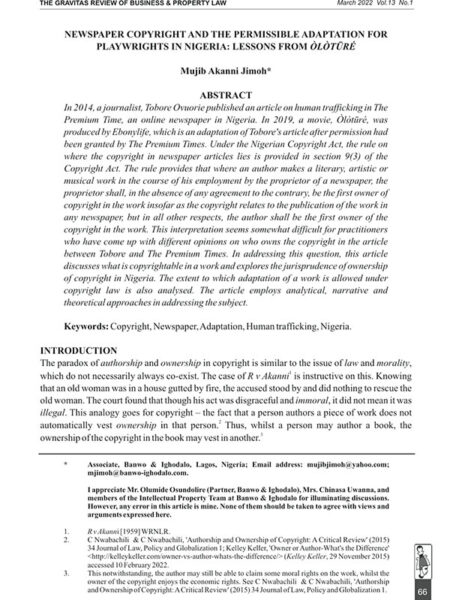


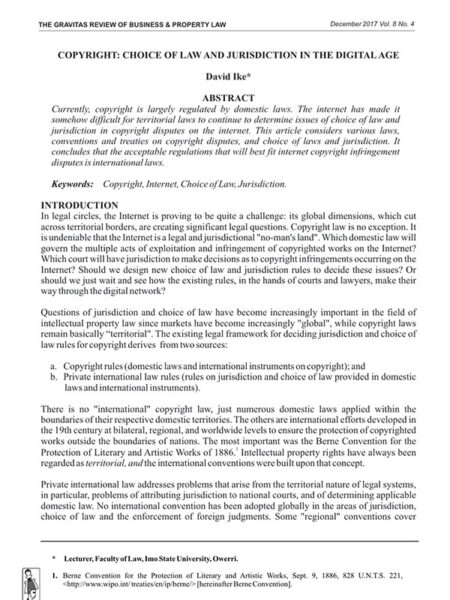
Reviews
There are no reviews yet.